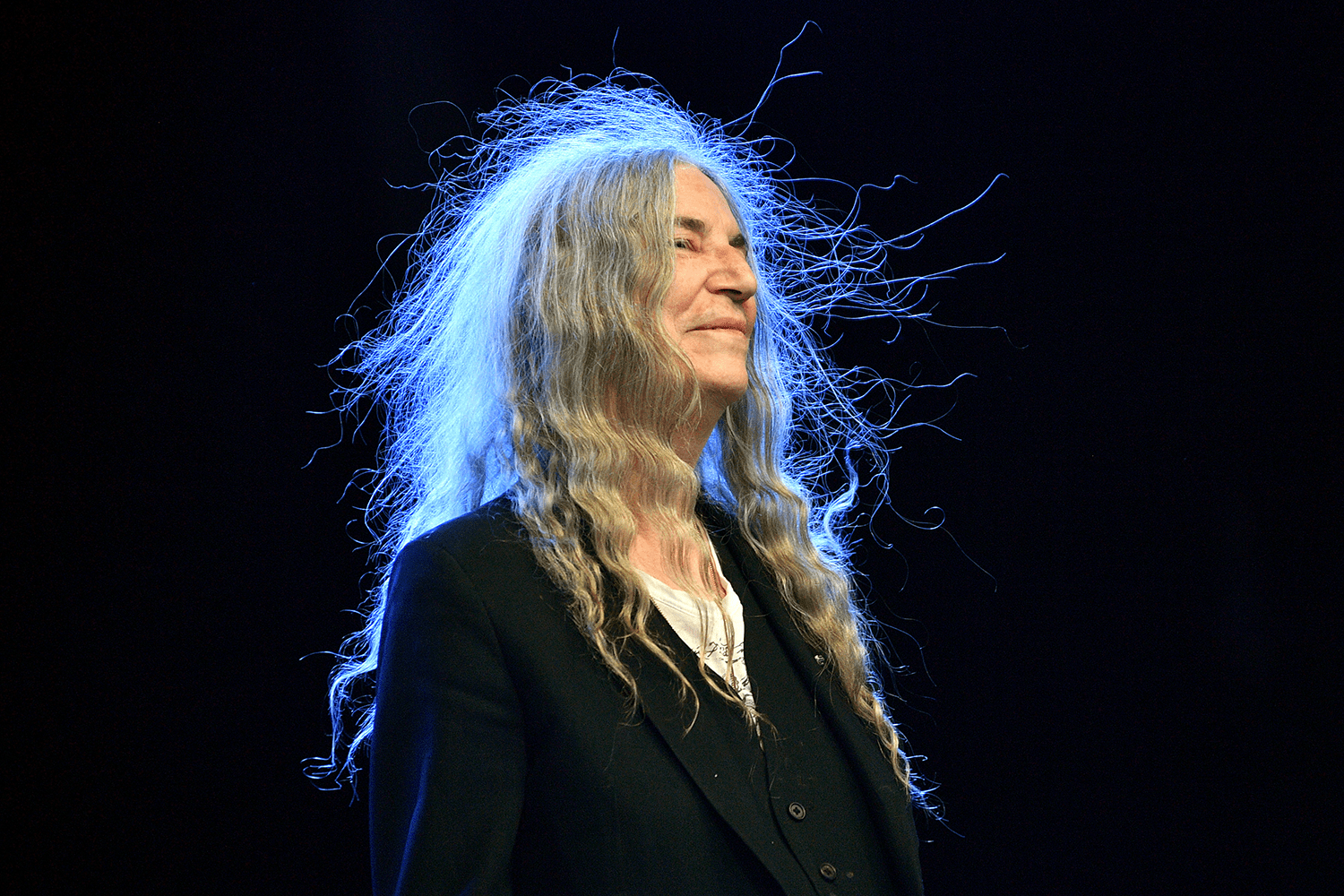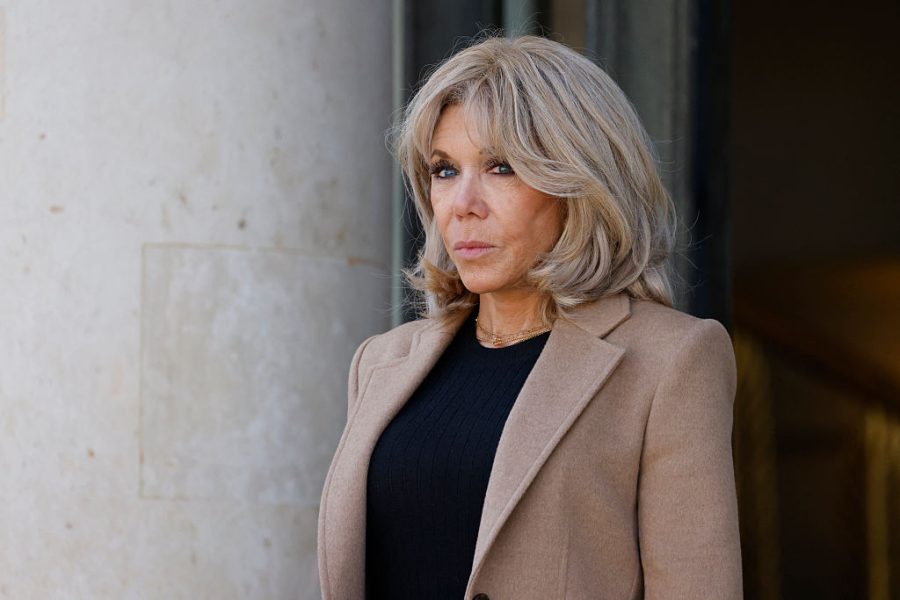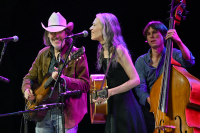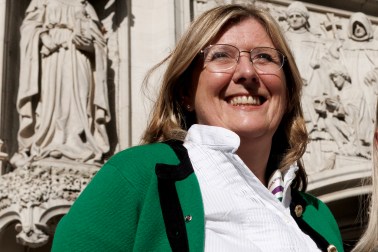There are certain long-established rules for describing Patti Smith. Google her name and the words ‘shaman’ and ‘priestess’ and you’ll see what I mean. For the best part of 50 years she’s been treated as though she’s a mystical object, a human convergence of ley lines, as much as a rock singer.
In the courtyard at Somerset House, she didn’t exactly discourage the clichés. There was a long lecture on the power of the full ‘buck’ moon, which was hidden by clouds but still prompted the people in front of me to pull out their phones to check astronomy apps. There was a lengthy hymn to William Blake that concluded: ‘And then the children, the chimney sweeps, remembered him.’ And of course, there was the song ‘Ghost Dance’, about identifying with the Native American struggle (in general, Native Americans are one of the subjects best avoided in a rock song, along with ‘I met an old man who turned out to be real wise’ and ‘Why I love my children’.)
Her status as one of the progenitors of punk – and as a feminist hero – meant the crowd was startlingly varied in age, from teens to people as old as Smith herself (she’s 77), who were rapt and devoted. She remains charismatic – still in black jacket and jeans, as she has been for ever. Her voice was always idiosyncratic so age hasn’t affected it; she sang powerfully throughout. And she has not done the thing some older singers do, of surrounding herself with lots of musicians to bolster the sound.
She played with a simple line-up of guitar, bass, drums and occasional keyboard, played by her son Jackson, longtime collaborator Tony Shanahan and the great British jazzer Seb Rochford. The garage-band attack of the group complemented her own rawness, and Jackson is a startlingly adept guitarist, reminiscent in tone to Smith’s old CBGB confrères Richard Lloyd and Tom Verlaine of Television.
To link this to punk, however, is misleading. More than anything Smith always appeared to be an angry hippie: a creator rather than a negator. There’s no doubt she has taken some horribly wrong turns (a collaborative album she made a few years back based on the work of Antonin Artaud is truly one of the worst things I’ve ever heard). But it meant that everyone at Somerset House was seeing a real artist. Even if, like me, you’re not mad about the music she remains an inspiring example of someone working on their own terms.
Linda Thompson wasn’t performing at her own gig in support of her album Proxy Music. After decades of spasmodic dysphonia, she has given up on singing and appeared on stage only at the very end. On the record, her songs were sung by a supporting cast, and this London show recreated that, with some of the same guests. The star was John Grant, who sang Thompson’s 1985 song ‘Telling Me Lies’. His voice was velvety, sure and relaxed. As it was, too, on the song ‘John Grant’ from Proxy Music, written for and about him.
Various friends appeared, but the show was at its most compelling when it settled on the Thompson family: Linda’s children Kami and Teddy – both fabulous singers and songwriters in their own right – and her grandson and lead guitarist Zak Hobbs. Concentrating on the family sometimes brought focus to an evening that otherwise seemed ramshackle and unco-ordinated. When Kami was singing on her own, or with Teddy – on ‘The Solitary Traveller’ or ‘Mudlark’ – it was beautiful and felt more true, precisely because this was a family affair.
The Thompsons have not always been a happy unit. Linda’s marriage to Richard Thompson fell apart when they were touring and you can hear the tensions between them all on various songs. Listen to the album Family, released under the name Thompson a decade ago, which deals with their history from their various perspectives. It makes them seem much more real and relatable than the usual American showbiz families. When they sing together, however, you just hear harmony.
The ramshackle nature extended to the show’s promotion. Proxy Music had glowing reviews, and Thompson has given interviews for the first time in years. But there were only maybe 400 people in a hall that seats 950 because hardly anyone seemed to know it was happening. A shame, for there were great pleasures to be had here. It lent a certain pathos to the inevitable conclusion of ‘I Want To See the Bright Lights Tonight’ – that great song about seeking the good times.








Comments